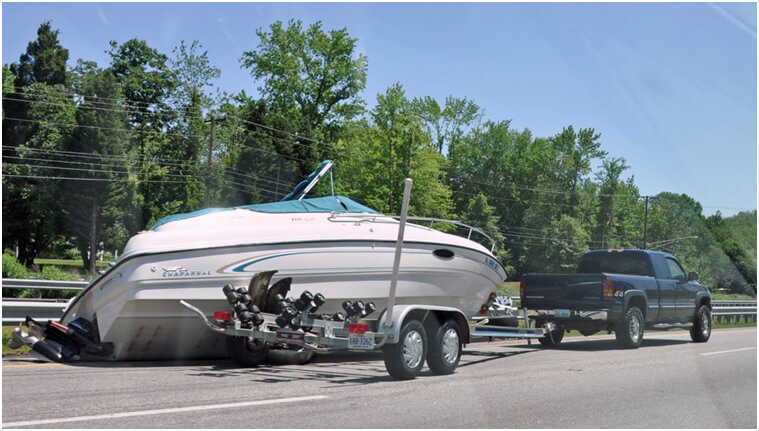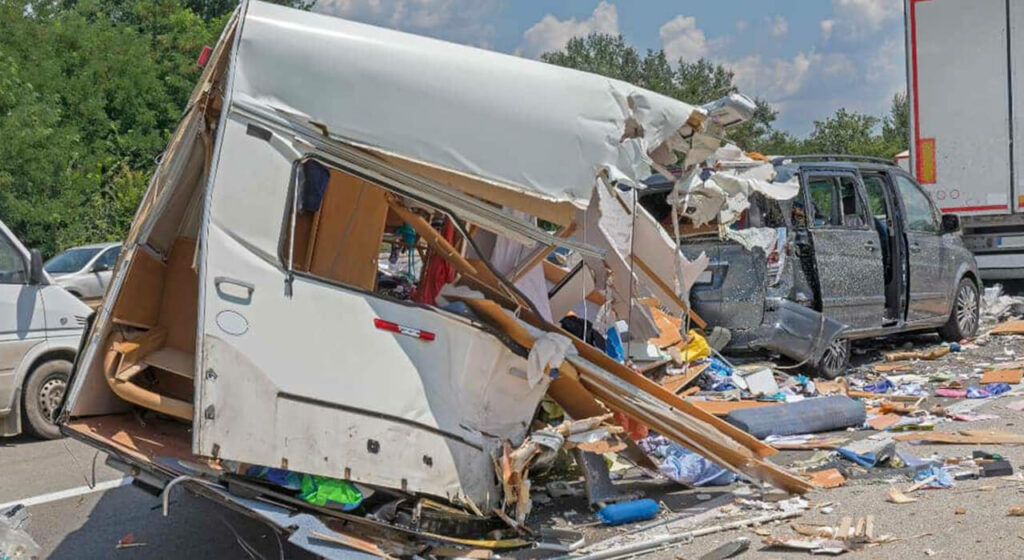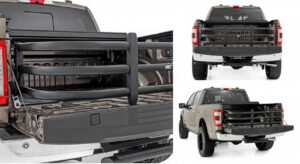Trailer towing can be a practical way of transporting large or heavy items, but it comes with its own set of risks and challenges. Unfortunately, many people make mistakes when towing trailers that could lead to accidents, damage to vehicles, and even injury. To ensure safety and responsibility are maintained when trailer towing, it’s important to be aware of the most common mistakes and how to avoid them for your own travels.
In this article, we will discuss some of the most common trailer towing mistakes and provide tips for avoiding them. Whether you are an experienced trailer owner or a first-time tower, it is essential to understand these mistakes to ensure safe and responsible trailer towing.
1. Overloading the Trailer
Towing a trailer is an important task, yet many people make the all-too-common mistake of overloading it. Exceeding its weight rating could result in instability on the road and make controlling or stopping difficult – ultimately resulting in accidents. Before hitting the road, be sure to check that your load isn’t too heavy and that you’ve evenly distributed it.
There is nothing quite like the thrill of traveling with a trailer, but safety should always be your first priority. Make sure to never exceed the trailer’s recommended weight limit and regularly check that its load stays within your vehicle’s limits too. Keep these valuable tips in mind and you will maximize all of the enjoyment as well as practicality that comes from taking a journey with a trailer.
2. Not Securing the Load
Failing to secure loads properly is a common mistake that can have serious consequences. Unsecured loads can shift, fall off the trailer and even cause accidents on the road. Such incidents would not only put the driver in danger but could also potentially injure other drivers or pedestrians as well. It is, therefore, important for movers to always ensure that their loads are securely fastened before taking off on their journey.
Securely fastening cargo before transport is essential for safety. Tie-downs, ropes or straps should be used and reinforced regularly during the journey. Taking care to double-check the load before starting can help protect against dangerous scenarios on the road resulting from cargo coming undone.
3. Improper Hitching
Improper hitching of trailers can lead to serious accidents. Trailers that are not securely connected to their vehicles are at risk of becoming loose, resulting in them swaying or detaching entirely. This could cause lost cargo, damage to the vehicle and trailer, or worse – injury or death. It is important to make sure the trailer is correctly attached while driving, and if any doubts arise, the trailer should be checked thoroughly before continuing on your journey.
Also Read: 7 Best Ultrasonic Cleaner For Carburetors (Experts Review).
To ensure safety when hitching a trailer to a vehicle, follow proper procedures and confirm that the hitch and ball are the right size. The hitch connection should be secure and regularly inspected for looseness or corrosion. Making necessary repairs will help keep you safe when towing trailers.
4. Not Checking Tires and Brakes
Towing a trailer can be dangerous if the tires and brakes are not properly maintained. Worn-out tires can reduce the gripping power, causing blowouts. As brakes age, their stopping power will diminish, increasing the risk of accidents. To remain safe while towing, it is important to inspect the tires and brakes on a regular basis and replace them when necessary.
It is important to ensure that your vehicle runs smoothly and safely. To avoid any troubles, it is essential to check the tires and brakes regularly and replace them when necessary. This could save you time, money, and stress in the long run by making sure your vehicle is properly maintained.

5. Inadequate Mirrors
Properly positioning your mirrors is an essential element of towing safety. Mirrors should be chosen that fit the size and type of vehicle and trailer you have, and they should be adjusted to provide a full view of the road behind you – simply tilting the rearview mirror up is not enough. Prior to any trip with a trailer, take some time to double-check that all your mirrors are correctly positioned for maximum visibility and safety. Doing so can help prevent accidents, save time and money, and keep passengers safe on their journey.
6. Failure to Check Trailer Lights
Trailer lights are an essential safety feature for any vehicle towing a trailer. They allow other drivers to see the trailer in low light or poor visibility conditions, as well as prevent accidents due to their presence. Regular maintenance is key: check the lights often and replace any bulbs that are not functioning. Carrying spare bulbs is also a good idea, just in case one burns out while you’re on the road. Following these simple steps will help ensure your safety and that of others around you.
Suggestion: 9 Cheap Sports Cars With Good Gas Mileage For 2023 – Our Top Recommendations.
7. Inadequate Driving Experience
Driving with a trailer in tow is not the same as regular driving and can be dangerous if you don’t have enough experience. To increase your chances of safe towing, it is essential to take a course on proper trailer towing and practice in a controlled environment such as an empty parking lot or quiet street. With practice and preparation, you can confidently drive with a trailer safely.
8. Ignoring Weather Conditions
In inclement weather, it is important to adjust your driving style for the conditions. Always check the weather forecast before setting out and be sure to slow down on slippery or wet roads. Leave extra stopping distance between you and the car ahead of you, as black ice can cause dangerous surfaces. Make sure your lights are on in foggy conditions and drive at a reduced speed to stay safe and prevent accidents.
9. Not Considering the Size and Weight of the Trailer
With the wrong trailer or an overloaded vehicle, accidents can occur. To prevent this from happening, make sure to select a trailer that is compatible with your vehicle and check its towing capacity beforehand. Doing so will guarantee that it won’t be too heavy for your car while also guaranteeing safe hauling.
10. Not Using a Weight Distribution Hitch
Without a weight distribution hitch, you run the risk of compromising your vehicle and trailer’s handling, and stability or even causing irreparable damage as a result of overloading them. It is imperative that you adhere to your hitch’s recommended weight limit and install it with precision in order to avoid any unfortunate consequences.
To sum it up, towing a trailer can be very useful in transporting items. But if done incorrectly, it could lead to hazardous consequences. By taking the necessary steps outlined in this article and never skimping on safety measures when pulling your trailer, you will have peace of mind knowing that you are following responsible practices while experiencing the advantages of having a trailer behind your vehicle. So now let’s hit the road – but not before committing yourself to safe travels!







